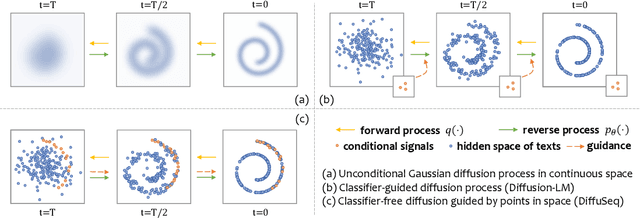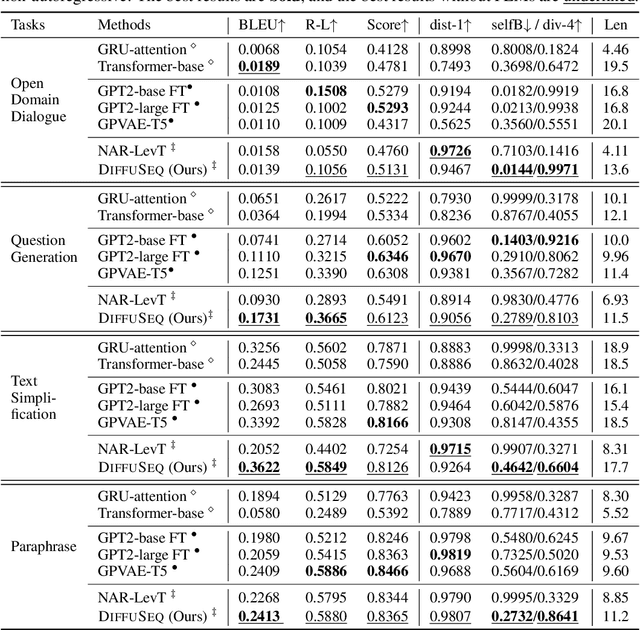DiffuSeq: Sequence to Sequence Text Generation with Diffusion Models
Paper and Code
Oct 17, 2022



Recently, diffusion models have emerged as a new paradigm for generative models. Despite the success in domains using continuous signals such as vision and audio, adapting diffusion models to natural language is difficult due to the discrete nature of text. We tackle this challenge by proposing DiffuSeq: a diffusion model designed for sequence-to-sequence (Seq2Seq) text generation tasks. Upon extensive evaluation over a wide range of Seq2Seq tasks, we find DiffuSeq achieving comparable or even better performance than six established baselines, including a state-of-the-art model that is based on pre-trained language models. Apart from quality, an intriguing property of DiffuSeq is its high diversity during generation, which is desired in many Seq2Seq tasks. We further include a theoretical analysis revealing the connection between DiffuSeq and autoregressive/non-autoregressive models. Bringing together theoretical analysis and empirical evidence, we demonstrate the great potential of diffusion models in complex conditional language generation tasks.
 Add to Chrome
Add to Chrome Add to Firefox
Add to Firefox Add to Edge
Add to Edge